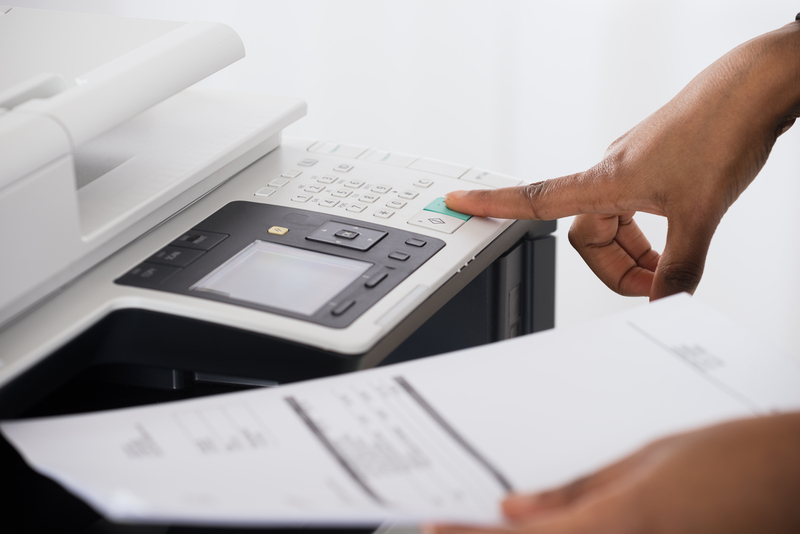Empowering Eco-Consciousness: School Recycling Tips
Eco-consciousness is more than a trend--it's an urgent necessity for our planet. Schools, as centers for learning and growth, play a pivotal role in nurturing responsible habits among young individuals. By incorporating well-structured recycling initiatives, educational institutions can cultivate lifelong habits while reducing waste and environmental impact. This comprehensive guide explores effective school recycling tips, innovative strategies, and inspirational ideas to empower eco-consciousness within the school community.
Why Developing Eco-Consciousness in Schools Matters
Modern schools are not just places for academics--they also shape values, attitudes, and citizenship. Fostering an eco-conscious mindset encourages students to treat the environment with respect and responsibility. With the average American producing over 4 pounds of waste per day, implementing potent school recycling programs can make an impressive difference.
- Reduces landfill waste: Schools can significantly decrease the volume of trash sent to landfills.
- Saves energy and resources: Recycling conserves raw materials and energy, reducing the ecological footprint.
- Instills lifelong values: Students learn critical thinking about consumption, waste, and sustainability.
- Fulfills curriculum goals: Eco-awareness fits perfectly into science, civics, and social responsibility curricula.

School Recycling Tips for Lasting Impact
1. Start with a Recycling Audit
Before launching any sustainable recycling program, perform a thorough assessment. An audit reveals where most waste is generated--classrooms, cafeterias, offices, or gyms--and what types (paper, plastics, food waste, electronics) are most prevalent.
- Engage students and staff in the audit process for meaningful learning experiences.
- Calculate current recycling rates and set achievable eco-conscious targets.
2. Set Up Clear, Accessible Recycling Stations
The success of a school recycling initiative is directly linked to the convenience and clarity of collection points. Design recycling stations to be:
- Highly visible: Position bins in high-traffic areas, including classrooms, hallways, cafeterias, and entrances.
- Clearly labeled: Use color-coded signs and images for paper, plastics, metals, e-waste, and compost.
- Consistent: Ensure identical labelling and instructions school-wide to minimize confusion.
3. Educate and Engage Every Participant
Empowering eco-consciousness among students, teachers, and staff begins with education:
- Hold workshops or assemblies on recycling best practices and the 'why' behind them.
- Incorporate recycling education into lesson plans, science clubs, art projects, and more.
- Invite local recycling experts to share real-world stories and insights.
4. Make Recycling Fun and Rewarding
Motivation is key to sustaining school recycling programs. Gamify recycling with:
- Competitions: Host class or grade-level "recycling challenges"--who can collect or sort the most recyclables?
- Recognition: Feature eco-champions in newsletters or at assemblies; provide eco-badges or other rewards.
- Art projects: Transform recyclables into art for school walls or garden displays, showing creativity and commitment.
5. Expand to Composting and E-Waste
Recycling isn't limited to bottles and cans. Composting food waste from cafeterias not only reduces landfill burden, but also yields valuable soil for school gardens. E-waste bins encourage proper disposal of batteries, old electronics, and printer cartridges--items often neglected in traditional programs.
- Partner with local services for safe collection and recycling of e-waste items.
- Use compost to fertilize flowerbeds, vegetable gardens, or science projects.
6. Involve the Whole School Community
A thriving eco-conscious school culture involves families, staff, and the wider community. Tips to expand participation:
- Send home recycling tips and guides for families.
- Host school-wide "eco days" inviting parents and neighbors to join efforts.
- Team up with local recycling companies to offer school-wide recycling pick-ups.
Advanced School Recycling Strategies
Adopt a "Reduce, Reuse, Recycle" Approach
Empowering eco-consciousness goes beyond just recycling. Teachers can:
- Encourage digital assignments over printed handouts when possible.
- Promote reusable bottles and lunch containers instead of single-use plastics.
- Do classroom supply swaps: Share resources across classes to reduce unnecessary purchases and waste.
Monitor, Measure and Celebrate Success
Ongoing tracking helps schools optimize their recycling programs:
- Keep a recycling log: How much of each material is collected per month?
- Display progress visually--charts, graphs, or bulletin boards make success tangible and inspirational.
- Celebrate milestones with school-wide events or awards for participation and innovation.
Innovate with Student-Led Initiatives
Students are passionate, creative agents for change. Empower them to:
- Form "green teams" or eco-clubs to champion new ideas.
- Lead recycling audits, conduct presentations, or mentor younger students.
- Organize community clean-up events or fundraising for eco-friendly projects.
Challenges and How to Overcome Them
Like any cultural shift, empowering eco-consciousness with recycling programs in schools may face challenges:
- Lack of awareness: Start with simple educational campaigns and visual reminders.
- Contamination of recycling bins: Provide ongoing training and clear signage on what can/cannot be recycled.
- Funding limitations: Seek local business sponsors, grants, or in-kind donations for bins and supplies.
- Inconsistent participation: Highlight the collective impact and foster a "team" mentality toward school-wide goals.
Tools and Resources for School Recycling Initiatives
- EPA's Waste-Free Schools resources: Offers classroom-ready resources, toolkits, and activity guides.
- Keep America Beautiful: Grant opportunities and guidance to launch or expand recycling programs.
- Recycling companies: Many offer free consulting or educational presentations for schools.
- Green Schools Alliance: Networking platform for sustainability professionals and educators.

Real-World Success Stories
- Zero Waste Schools: Some U.S. schools have achieved near-zero waste status by integrating recycling, composting, and upcycling throughout their campuses.
- Eco-Service Learning: Schools that blend environmental education with community service projects see higher engagement and real-world impact.
- Student-Led Campaigns: A high school in California doubled its recycling rate after students initiated a peer-to-peer education campaign and advocated for more recycling bins on campus.
Conclusion: Create a Greener Future with Empowered Eco-Consciousness
Empowering eco-consciousness through effective school recycling goes far beyond managing waste--it's about establishing a resilient, responsible culture that can ripple out to families and communities beyond the schoolyard. By implementing the strategies, tips, and inspiration shared above, every school can lead the way toward a more sustainable future.
Remember: Small steps--like placing the right bins in the right places, celebrating successes, and integrating environmental education--can make a big impact. Get your students, staff, and community excited about the possibilities. Start today, and watch your school become a shining example of eco-conscious empowerment!